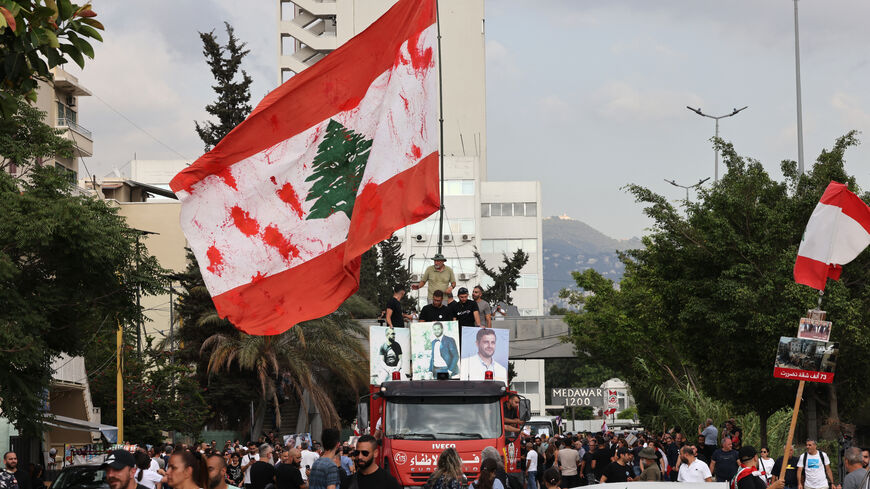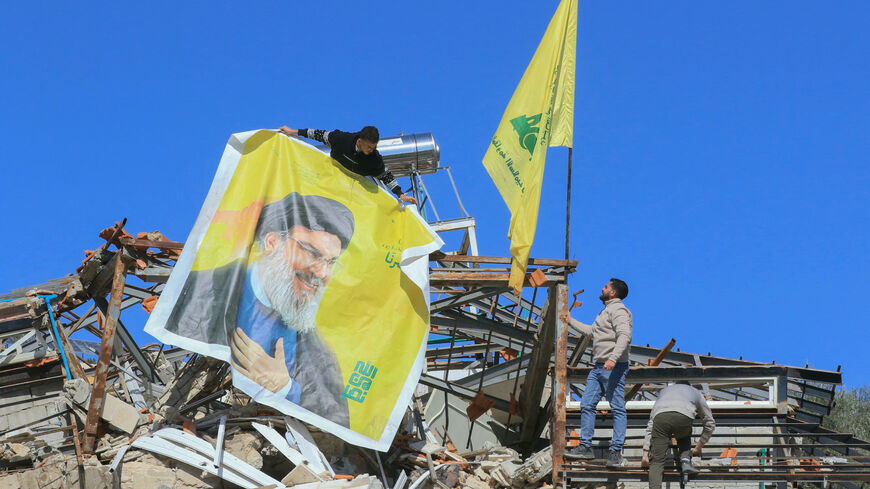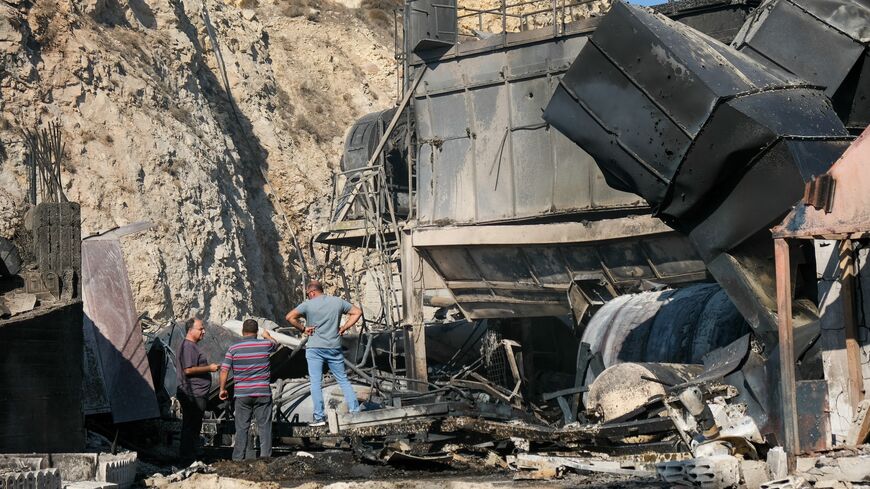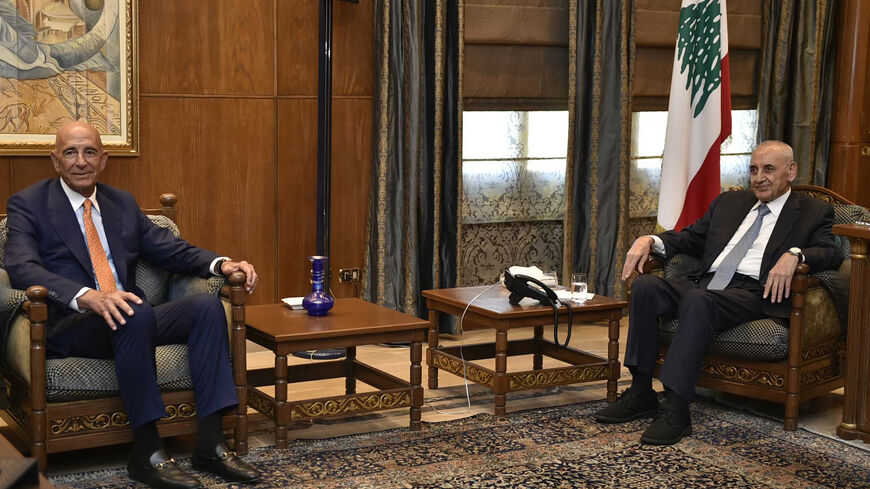Israel escalates Lebanon attacks amid US frustration over Hezbollah disarmament
Lebanon has been under growing pressure from the US to completely disarm Iran-backed Hezbollah, which emerged weakened from its war with Israel.
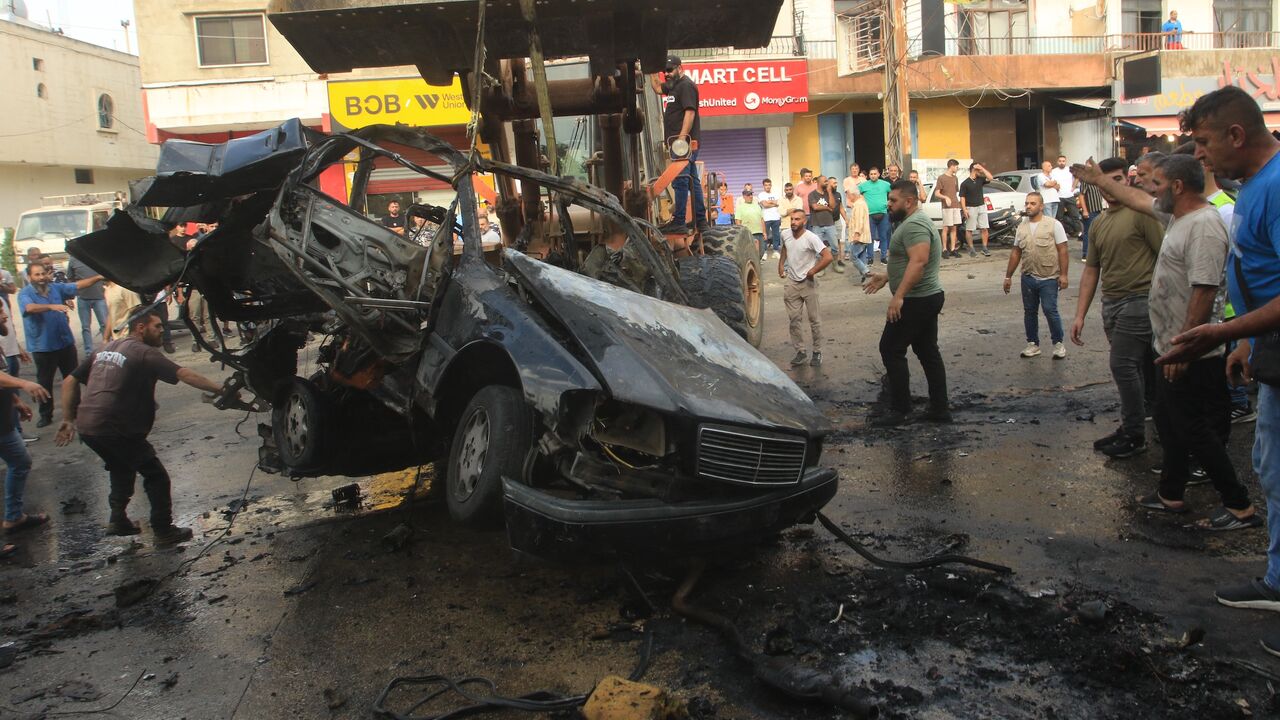
BEIRUT — At least two people were killed in Israeli airstrikes in southern Lebanon Monday, as Israel threatened to intensify its attacks amid growing US and Israeli frustration over Lebanon’s apparent stalling on Hezbollah’s disarmament. This comes as Beirut seeks Egypt’s mediation to end hostilities on the border.
An Israeli drone fired three missiles at a car in a crowded area of al-Sharqiyeh town in the Nabatieh district on Monday, killing one person and injuring at least seven others, the state-run National News Agency reported. Several nearby vehicles caught on fire, while surrounding shops and homes were damaged.
🚨 غارة من مسيّرة إسرائيلية تستهدف سيّارة على طريق عام الشرقية - الدوير #نداء_الوطن pic.twitter.com/HTtmq1ez8R
— Nidaa Al Watan نداء الوطن (@NidaaWatan) November 3, 2025
Later on the same day, another Israeli drone strike hit a motorcycle in the border town of Aita al-Shaab, killing one person, according to the Lebanese Ministry of Health.
The Israeli military said in a statement that it had killed Hezbollah commander Mohammad Ali Hadid, adding that he "advanced numerous terror attacks against the state of Israel … and has continued attempts to reestablish Hezbollah terror infrastructure sites."
Israeli warnings
Israel has continued to launch near-daily airstrikes against what it says are Hezbollah positions despite a November 2024 ceasefire that ended the 13-month war with Lebanon. But in recent weeks, it has escalated its attacks amid stark warnings from its officials that Hezbollah is attempting to rearm and regroup in violation of the ceasefire and that Beirut is delaying the disarmament process.
“We expect the Lebanese government to uphold its commitments; namely, to disarm Hezbollah. But it’s clear that we’ll exercise our right to self-defense as stipulated in the ceasefire terms,” Israeli Prime Minister Benjamin Netanyahu said during the weekly meeting of the Israeli cabinet on Sunday.
“We won’t let Lebanon become a renewed front against us, and we’ll do what’s necessary,” he added.
Similarly, Israeli Defense Minister Israel Katz said that “Hezbollah is playing with fire, and the president of Lebanon is dragging his feet.”
“The Lebanese government’s commitment to disarm Hezbollah and remove it from southern Lebanon must be realized,” Katz wrote on X on Sunday, adding that “maximum enforcement will continue and deepen — we will not allow a threat to the residents of the [Israeli] north.”
The Israeli warnings came one day after an Israeli airstrike killed four people in the town of Kfarsir in the Nabatieh district. The Israeli military confirmed the attack, saying it killed four members of Hezbollah’s elite Radwan Force, including the unit’s logistics chief.
According to the military, the commander — whom it did not name — was involved in the “transfer of weapons and was attempting to rebuild Hezbollah’s terrorist infrastructure in southern Lebanon.”
An Israeli official told the Saudi-owned Al Arabiya TV channel on Sunday that there are “serious estimations” Hezbollah is rebuilding its capabilities and has smuggled hundreds of short-range missiles from Syria despite the Lebanese government’s efforts to curb such operations.
“Israel has relayed a message to the Lebanese side that it might again bomb Beirut’s southern suburbs if Hezbollah is not disarmed,” the official told Al Arabiya.
“We will not allow the rebuilding of the Lebanese villages that lie directly on the northern border,” the Israeli official added, noting that Israel will continue occupying the five Lebanese hills and has no plans to withdraw in the “foreseeable future.”
The Wall Street Journal reported last week that Hezbollah is restocking its weapons, bringing in rockets, antitank missiles and artillery via seaports and land routes, including from Syria. The group is also manufacturing some weapons domestically, according to the report.
Lebanon has been under growing pressure from the US to completely disarm Iran-backed Hezbollah, which emerged weakened from its war with Israel. The Lebanese army says it is moving forward with a plan it drafted in September to bring all weapons under state control.
Hezbollah has refused to hand over its weapons under what it calls “US and Israeli dictates.” In an interview with the Hezbollah-affiliated Al-Manar TV channel on Sunday, Hezbollah Secretary-General Sheikh Naim Qassem warned against any attempts to disarm his group.
“The possession of weapons is an integral part of our legitimate right to defend our homeland and our existence,” he said.
US frustrated with Lebanon
It appears that Washington is losing its patience with Lebanon’s handling of the Hezbollah disarmament file.
Speaking at the Manama Dialogue summit in Bahrain on Sunday, US envoy to Syria Tom Barrack — who is also the Trump administration's point person on the Lebanon file — called Lebanon a “failed state,” citing the numerous crises the country faces and the “paralyzed government.”
He said Lebanon must “get in line." He warned, “You do not have time,” adding that Israel will keep bombing southern Lebanon as long as Hezbollah and its weapons pose a threat along the border.
“The Lebanese leadership today is solid. President Aoun, [Prime Minister] Nawaf [Salam], even Speaker [Nabih Mustafa] Berri. They’re trying, but they’re dinosaurs.” Barrack said, calling on them to act fast to resolve border and other issues with Israel.
“You have that conversation on the Blue Line, the Lebanon-Israel border,” he said. “You have the conversation with Syria, and in four months, you could end all of this."
The ceasefire, which the US helped broker, called for the disarmament of Hezbollah south of the Litani River — about 30 kilometers (18 miles) from the border with Israel — as well as the withdrawal of Israeli forces from five border towns it occupied during the war.
Mediation efforts
Aoun expressed on Friday his country’s readiness to engage in indirect talks with Israel in order to put a stop to the attacks.
“Lebanon is ready for negotiations to end the Israeli occupation, but any negotiation … requires mutual willingness, which is not the case,” Aoun said during a meeting in Beirut with visiting German Foreign Minister Johann Wadephul, according to a statement by the Lebanese presidency.
He reiterated this position on Monday, saying that “Lebanon’s only choice is negotiations” with Israel.
“The end of every war in the world has been negotiation, and negotiation does not take place with a friend or an ally, but rather with an enemy,” Aoun said.
The president ordered the Lebanese army to “confront” any Israeli incursion into Lebanese territory last Thursday after Israeli forces killed a municipal employee during a raid in the border town of Blida.
On Sunday, the Lebanese army deployed vehicles and personnel in the border town of Mais al-Jabal after detecting Israeli military movements on the other side of the border, according to the NNA. The Lebanese troops later withdrew.
The growing tensions between Israel and Lebanon coincided with Prime Minister Salam’s visit to Cairo on Sunday, where he met with his Egyptian counterpart, Mustafa Madbouly.
During their meeting, the Egyptian premier condemned the ongoing Israeli attacks on Lebanon and stressed Egypt’s support of the Lebanese government’s efforts to achieve stability.
“We strongly condemn Israeli attacks and violations in southern Lebanon,” Madbouly said, urging Israel to withdraw from the five Lebanese border areas.
Salam’s trip to Cairo came after Egyptian intelligence chief Hassan Rashad was in Beirut last week. Rashad held a series of meetings with Lebanese top officials, including Aoun, on Tuesday, during which he expressed his country’s readiness to “help stabilize the south and end the turbulent security situation there,” according to a Lebanese presidency statement.
No further details of the talks were made public.
But according to information obtained by Al-Araby Al-Jadeed, Rashad’s visit to Beirut is part of Cairo’s role to establish peace and stability in the region in coordination with the US.
The Lebanese military has been carrying out operations south of the Litani River and near the border with Israel in an effort to dismantle Hezbollah's military infrastructure in line with the ceasefire.
According to CENTCOM, the army has removed almost 10,000 rockets, nearly 400 missiles and more than 205,000 pieces of unexploded ordnance from southern Lebanon over the past year.
Lebanon suffered extensive damage during the war, which lasted from October 2023 to November 2024. According to a World Bank report published in March, the country’s recovery needs are estimated at $11 billion. The housing sector alone accounted for $4.6 billion — 67% of the total damages — mainly concentrated in southern Lebanon and the Beirut suburbs, areas largely under Hezbollah’s influence.
In June, Lebanon secured a $250 million World Bank loan to support reconstruction efforts.

